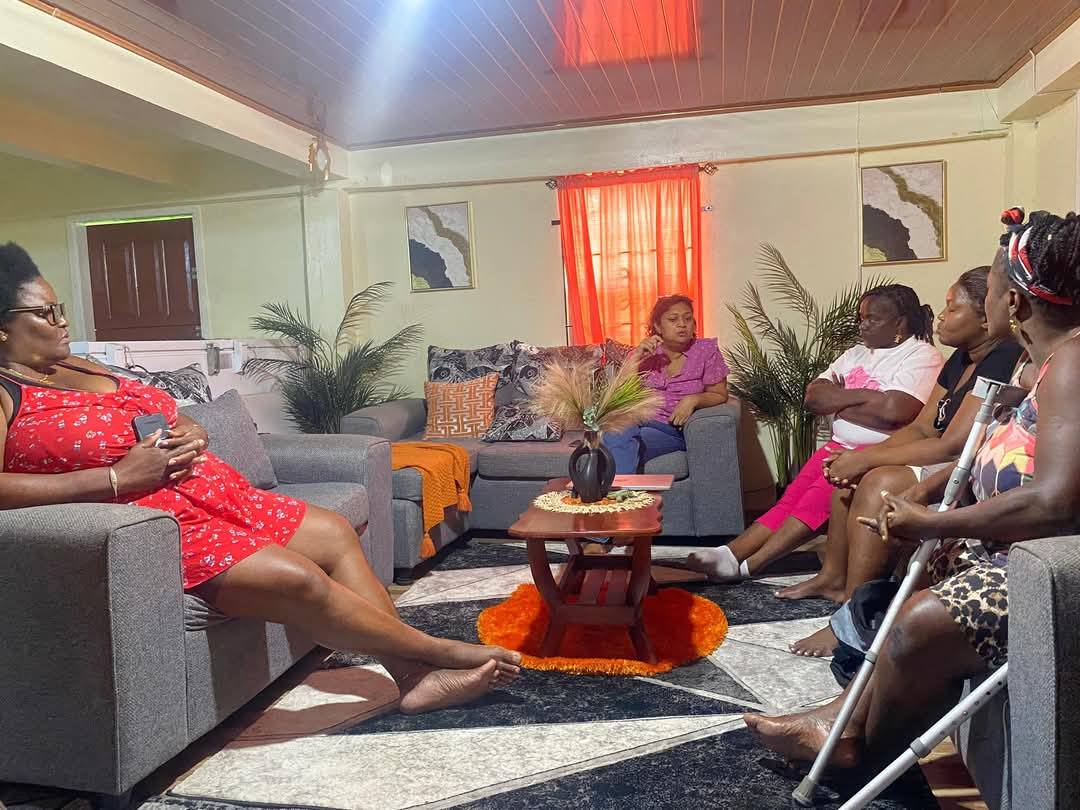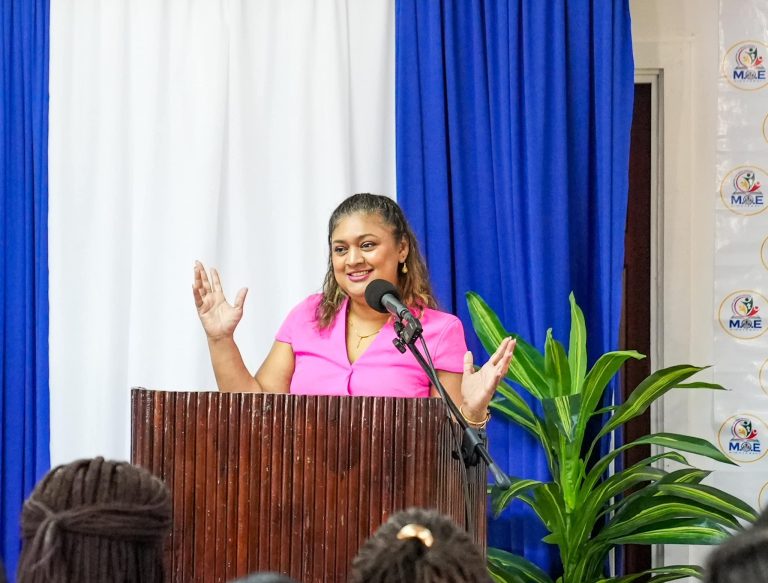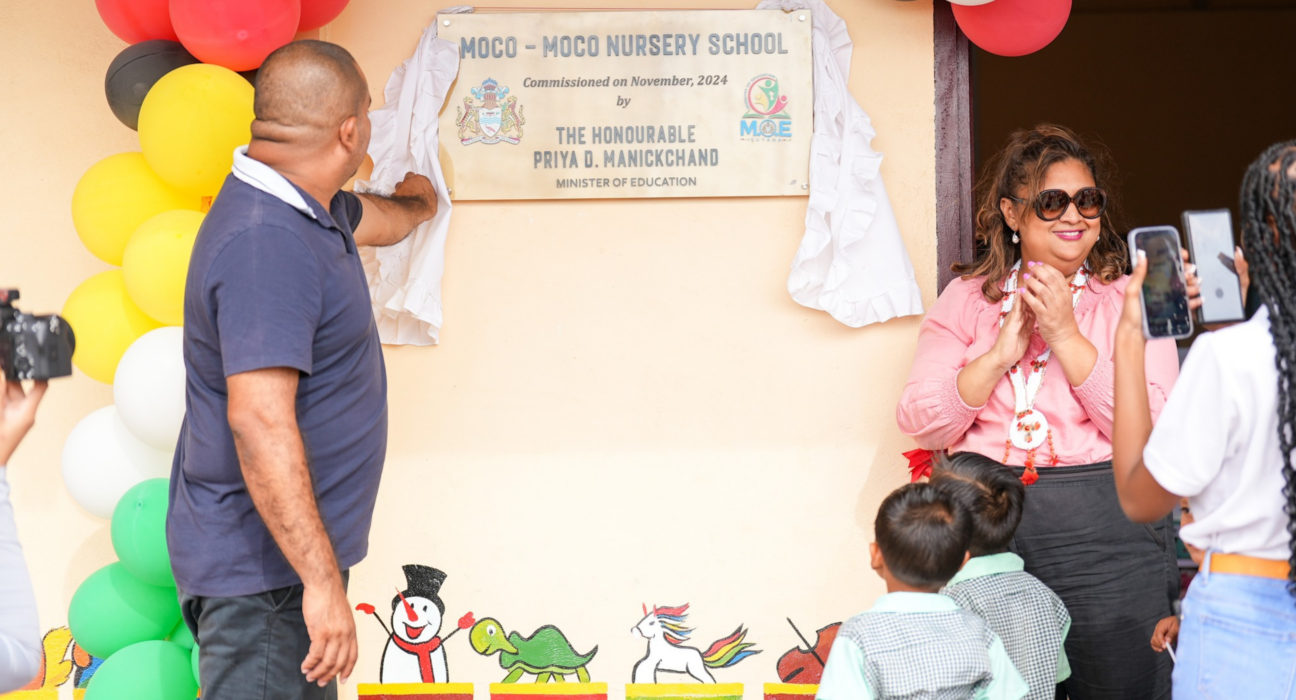On Monday, most students nationwide are expected to collectively begin the new school year with lessons being delivered through online classes, on-air educational programmes, and traditional workbooks, Minister of Education Priya Manickchand announced yesterday.
Manickchand told a virtual press conference that worksheets, text books and workbooks will be provided to hinterland students and others who cannot continue their learning either online or via broadcasted programmes. She said delivery of the print material will be done by midweek as one month’s worth of material has already been printed and is ready to be distributed as the ministry seeks to mitigate the disruptions in the delivery of education caused by schools remaining closed due to the COVID-19 pandemic.
The minister urged all involved in the education process to play their respective part in making sure that the children of the nation continue to receive their education.
The Ministry of Education’s (MoE) plan will work in tandem with the schools’ timetables, which both teachers and the various channels (the Learning channel, NCN/ Channel 11 and other channels in various regions which will broadcast for the Learning Channel) will be guided by to ensure every student from nursery to tertiary level is being taught on an almost even scale.
The programmes set up will focus primarily on the four core subject areas – Math, Science, English and Social Studies – for the Primary-level students. Nursery kits containing workbooks, story books, and other learning aids for nursery school children will be made available in the weeks to come, according to the minister. The Secondary-level students will have work on the core subjects for grades 7 to 9, while grades 10 and 11 will have added subjects which are usually taught at those levels. The work will also be provided to hinterland students but on worksheets and in workbooks and textbooks.
Manickchand further disclosed that as part of the preparations to deliver work to as many geographical areas as possible, some regions now have access to the Guyana Learning Channel when they might not have had before, while others that may have lost their connection have now regained it.
While the ministry has tried to cater to the education needs of all children, the remaining question is whether this approach will be beneficial in the long-term. To this Manickchand said that while online teaching may never be able to replace the face-to-face method, the ministry cannot sit by and do nothing, especially since studies have suggested that learning-loss can result in high dropout rates and regression, which are a very real concern in the education sector. She added that too many children have been disengaged since March and that has to be addressed. As a result, the ministry will continue to seek the best suitable solution until the country can return to some normalcy.
She acknowledged that the ministry is relying on the assistance of the parents and the extended families of the students to ensure that they are going to benefit from this “try” at getting the learners back to learning. “It is not normal times. We all have to give the best we have to making sure as best we can that our children are engaged. I don’t have and don’t think anyone in the world has perfect answers to any of these questions but what we have to do from the ministry level is make sure that we provide and then we encourage through various advertisements, face-to-face engagement, keeping safe distances of course, in trying to make sure what we want to do is somewhat successful,” she said.
Speaking about the factors which may affect the learners, she said that the ministry is aware that many students and teachers are not going to be on the same level of accessibility but that time is
limited and solutions are not as readily available.
Regarding the concerns of many as to whether teachers will be actively involved in the new way of educating, Manickchand said that teachers have shown much interest and have been innovative in trying to educate their students and she fully intends to see them continue along this path.
She also addressed the recent mix up where the Guyana Teachers’ Union (GTU) believed that schools had been secretly reopened and had called out the Ministry for being biased towards the senior schools. The minister said that the GTU’s concerns about connectivity for teachers and students were shared in a virtual meeting over two weeks ago. The ministry therefore expects the GTU to support the teachers as they carry out their mandated duty.
As it relates to internet connectivity and the skills needed for the best experience with online teaching, the MoE has launched its teachers training programme, which will ensure that all teachers are taught or trained on how to use the different online options for work delivery.
In catering to the hinterland teachers, the ministry has received permission from the organizations which will be training the teachers, to have their modules printed and made available for the teachers who would not be able to participate virtually. The modules will tackle the theoretical aspect of the lessons, while arrangements will be made to accommodate the practical aspects.
As for when or if schools will reopen, Manickchand said that the decision will be determined when health officials say it is safe to do so, but in the meantime, the ministry intends to start preparing schools with the necessary utilities for a safe reopening. “Medical opinions have suggested that after a period of consistent testing in terms of numbers you can see a levelling off in numbers and that’s when generally people would make recommendations about what we should do. We are not there as yet. A PAHO [Pan American Health Organization] consultant approved checklist has been sent out. How many sinks we have, how many have running water. How many children are registered in the school? And then we are going to look at proportionally whether they have enough sinks. How many toilets are there? Are they flushing? Do we need black tanks? Do we need running water? Does this school have enough ventilation? Do we need to open a couple of windows in these classrooms? That is ongoing …” Manickchand explained.
She informed that when schools do reopen, it would be for the older students to return, but under strict protocols. The phased reopening would have to undergo many deliberations, she said.





